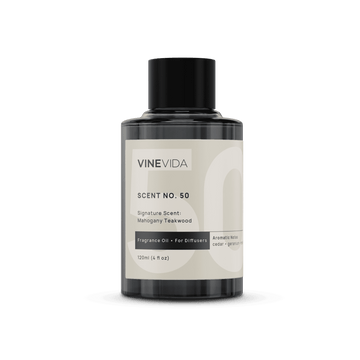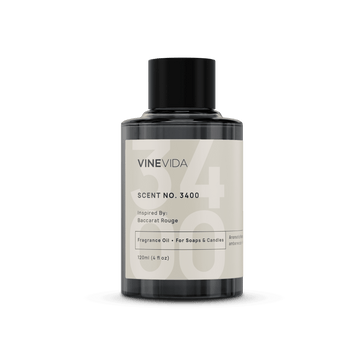Melissa essential oil is best known for its calming and uplifting effects but is also a tremendous gynecological support. Well-loved for its soothing digestive abilities and how well it affects sleep. Melissa essential oil is best used in creams, lotions, and massage oils.
My book Melissa Officinalis - The Initiation Plant Of The Bee Priestesses Of Demeter took four years to write. Eventually, it became two books, with Meeting The Melissae being taken by John Hunt Publishing to be launched in September 2023. It seems strange to be back here thinking about Melissa's essential oil again!
What is Melissa?
Melissa officinalis is the Latin name of Lemon balm, an aromatic herb from the mint family that grows throughout Europe, Asia, and North America. It has bright yellow flowers and leaves with a lemony flavor and scent. Lemon balm has long been used as an herbal remedy for various ailments including anxiety, stress, insomnia, headaches, and cold sores—but its primary use is for digestive relief.
The Essential Oil
The essential oil is steam distilled. Oddly for a plant that smells so strongly in the garden, its essential oil yield is tiny, around 0.003%. This explains its high cost.
It acts as a middle-to-top note with its sharp citrus aroma when used in blends.
Melissa and The Bees
The word Melissa is an ancient Greek word that means bee. It is likely called that because one of the main pheromones bees use to communicate with one another has an almost identical chemical composition. One of my favorite things is when other honeybees visit our garden and check out homes we have left for them, and they mark them with Nasonov, the pheromone. Consequently, the garden smells like lemon balm. They use Nasonov for many things, including signaling when female larvae should be fed up with royal jelly to become princesses and calming the colony.
If I open the top of the hive to check on them, they immediately start secreting Nasonov to calm the colony down, and if I move a hive, they use it to show the fliers what direction they fly in to get back to the hive. We can trace the use of Lemon Balm leaves to attract swarms of bees and to raise honey back to ancient Greece.
Honey bees aren’t bothered by the tiny white flowers that appear on the plants, but bumble bees and little carder bees love it because they are so rich in nectar. The ancient herbalist Paracelsus speaks of how plants rich in nectar are wonderful heart-opening medicines and cites Melissa as the perfect example.
Later in the article, I’ll give you directions on how to use essential oils to bait a hive, but for now, let’s talk about how you can use Melissa essential oil in human medicine!
The Limitations of Research into Melissa Essential Oil
Before we get deep into this, I’ll do my usual warning around research because it applies more to Melissa essential oil than any other plant medicine I have ever studied.
FDA restrictions prevent me from making medical claims about essential oils because they do not have a license. I can only talk to you about what it can do to cite medical research.
The problem with doing that is that aromatherapists often overstep the mark. There is a tendency to think that if an experiment proves an action with a different extract, as long as it's the same plant, the medicine will stay the same. There are only some chemical constituents that can pass through distillation. Since lots remain in plant matter or even the water left behind, only some of the actions travel across distillation. In particular with Melissa, there is much research into a magical constituent called Rosmarinic Acid (RA), which has many skills, especially for pain. However, RA is a huge molecule, far too heavy to be lifted by steam, so it is not in the essential oil.
Because everyone wants to leverage RA, only some studies focus on the effects of essential oil.
Understanding the Limitations
That does not mean there is no proof that Melissa essential oil has been used - anecdotal evidence of thousands of users over hundreds of years provides that proof - it purely means it is not the most efficient route to finding ways to make pharmaceuticals.
Remember that experiments are not done to discover if essential oils can do specific things like ease pain or depression. A scientific study gets funding based on the fact that herbal medicine already sees good results. The money is usually invested in understanding why it works or how it could be replicated.
The Essential Oil of Joy and Calm
I spoke earlier of Paracelsus and how he spoke of Melissa being a heart-opening medicine. Indeed, he ranked it as one of the highest aromatic medicines called The Elixir of Life.
Melissa has the same effects on humans as it does on bees. It is an almost instantaneous lift if you are nervous or melancholy.
There are lots of research on using it for people with dementia, not only because it is very good for memory but also because it eases aggression and frustration.
Many studies have been done on people in care homes, usually using Melissa essential oil in hand massages. They all show patients feeling calmer and happier after their massage. As the bees with their hives moved, these people experienced less confusion.
Melissa disperses feelings of gloom, depression, nervousness, and sadness. Try diffusing this oil in your home or office to create a more relaxed atmosphere. Add a few drops to an aromatherapy necklace or bracelet for all-day relaxation.
Calming Anxiety & Stress
Due to its calming effects on the mind and body, Melissa essential oil can be used to reduce symptoms of anxiety and stress. Mix a few drops with a carrier oil (such as coconut or jojoba) and massage it into your temples or chest. Alternatively, add a few drops to your bath water before soaking it for 15 minutes or more.
Also Read: Best Essential Oils for Anxiety
Digestion
This is a very big one. There is so much research into Melissa extracts (but very little into the essential oil). It seems likely that Lemon balm will eventually be used as a drug for weight loss, diabetes, and lowering cholesterol. All these have extremely promising trials, but these are not done with essential oils.
Aromatherapists use Melissa essential oil to soothe indigestion, flatulence, and heartburn.
Menstrual Problems
Just as a beehive is a matriarchal community (in a colony of around 60,000 bees at the height of summer, only about 500 will be drones, males), Melissa essential oil is very much a woman’s medicine.
In particular, Melissa essential oil is wonderful for menstrual problems. Melissa soothes pain as well as settles mood and digestion. Most studies are done with Lemon Balm tea rather than essential oil. Still, research shows that drinking lemon balm tea is more effective for menstrual pain than using the medicine the doctor prescribes, mefenamic acid. (Dehcheshmeh, 2016)
Also Read: Essential Oils For Menstrual Cramps
Post Partum Health
Melissa is wonderful for both after-pains post-delivery and postpartum blues.
Again, lemon balm was more potent than mefenamic acid for the after-pains. Further, in a study of women who had had cesareans, women were given a hydroalcoholic extract of Melissa officinalis, protecting them against the hormonal fluctuations that cause baby blues. To be clear, though, although it sounds like it, a hydroalcoholic extract is not an essential oil or even liquid for that matter; it is a solid extract of lemon balm (Dastjerdi, 2019)
Also Read: Most Effective Essential Oils for Pregnancy
Insomnia and Dreaming
The priestesses of the ancient Greek goddess Demeter were called Melissae. They had many functions, including being prophetesses and healers. Indeed, the Oracle of Delphi was called Melissa Delphis, the Delphic bee.
They conducted many rituals and were connected to the sanctuaries of Aesclepius through their work in the Eleusinian mysteries. The Aesclepians were a dreaming cult and Melissa essential oil profoundly affected dreams.
Melissa helps you sleep more deeply and brings lucid and informative dreams.
Also Read: Best Essential Oils for Sleep
Cold Sores
The antibiotic-resistant Herpes Simplex Virus causes cold sores. Melissa essential oil has great potency against HSV (Astani, 2012)(Schnitzler, 2008) and makes a tremendous ingredient if you make your own lip balms.
Insect Bites and Stings
Especially bee stings!
Allergies
Melissa essential oil is wonderfully soothing for hay fever and cat allergies especially. Combine it with soothing oils such as lavender and chamomile, and if your nose gets stuffy, maybe some frankincense or myrrh.
Safety of Using Melissa Essential Oil
Maximum Dilution
The International Fragrance Regulations Association sets the maximum dilution at 0.4% because of its high dispensation towards skin irritation.
For this reason, I do not recommend using melissa essential oil in the bath, and it is perhaps too expensive to use in a diffuser unless you dilute it into a carrier.
Children
This is a very sharp oil. If you use it on a child - for hay fever, for example….I’d suggest going as low as 0.25%.
Not suitable for use during the first 16 weeks of pregnancy.
How to Use Essential Oils to Bait a Swarm
If you do want to bait a hive for a swarm, there are a few tips I can give you. First, use about 5 drops of Melissa essential oil (or lemongrass also works well). Rub them at the entrance of the hive and inside.
Bees like to go where bees have been before, so if you know a beekeeper, ask them for some old brood comb to put in. A brood comb is a blackened honeycomb full of cocoons where the queen has laid her egg. They have matured, and then the larvae have hatched to become bees. Brood comb can be melted down for wax, but to be honest, the cocoons make such a mess that most keepers don't bother melting it and use virgin comb they have taken their honey from instead. Consequently, most will happily part with a bit of brood comb.
Last, to convince their bees have been there before, rub propolis over the walls. I have had much success attracting swarms, and the Melissa and brood comb is the magic mix. It’s marvelous to watch them arrive and open the door and let themselves in!
I use long hives, so my bees are uber-spoiled because I line the floor with herbs and flowers to scent the hive and give them pollen and nectar to get them started.
Here’s a video of a swarm arriving last year.
https://youtube.com/shorts/GSHeBEgCxpE?feature=share
Here, they are moving in.
You’ll notice a much smaller plain wood and blue hive next to it. This is a bait hive. Melissa is in that one, but they probably opted for the old hive bees were in last year because of the brood comb.
There are perfectly good doors at the front that a few of them are using, but this particular colony is unbelievably bossy about making its doors. They dug a knot out of the wood under the lid and used that. I filled that one in; then they made a door on the floor!
Conclusion
Melissa essential oil is a dreamy, relaxing, and uplifting oil. It is lovely for premenstrual mood and pain and for helping bond mom and baby. It has great action on digestion and is soothing for insect bites and bee stings.















